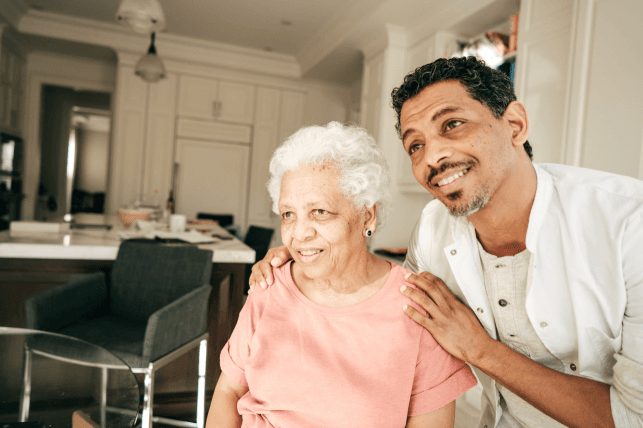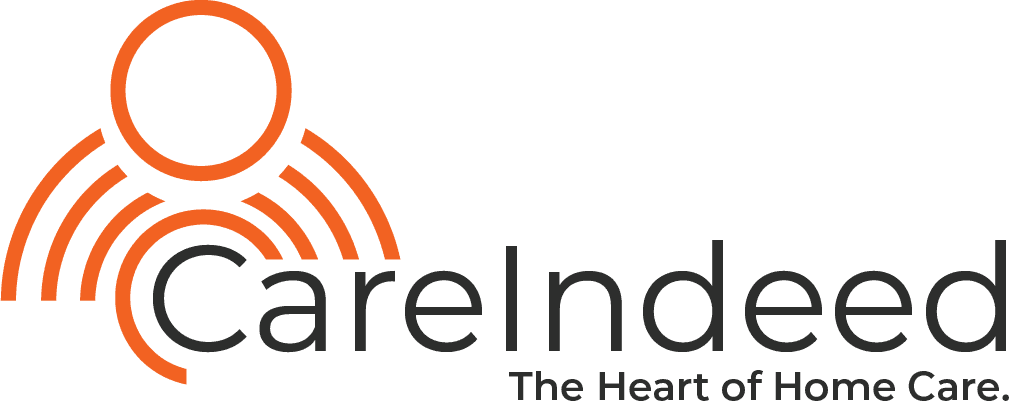
National Family Caregiver Awareness Month
Dee Bustos
Home Care Services
Nov 20, 2021
11 min read
November marks National Family Caregivers Month. Family caregivers provide in-home care for a surprisingly large percentage of senior Americans and vulnerable individuals.
Family caregivers play an important role in the US healthcare system. According to a 2019 report by American Family Physician, 90% of the long-term care for adults living at home is provided by family caregivers.
More than 11 million caregivers in the US alone take care of individuals with Alzheimer’s or other Dementia. The US Department of Labor estimates over 40 million Americans provide in-home, unpaid care for seniors.
Care Indeed is reflecting throughout this month on the amazing contributions our Bay Area family caregivers provide loved ones requiring in-home care. Take time this month to reach out to a friend, colleague, or family member who is a family caregiver and acknowledge what they do.
What Are Family Caregivers?
Family caregivers are non-medical individuals who provide comprehensive care for an aging family member, a spouse, or a loved one with Alzheimer’s, Dementia, or any other cognitive disorder or medical challenge. Care is provided in the home, and the family caregiver rarely receives compensation for the care.
Looking after the elderly or a family member with a disability is far more difficult than you may imagine. Family caregivers are often on call 24/7.
It’s one thing to sustain that kind of a schedule for a day, or a week, or maybe even a month. The majority of family caregivers help the impacted loved one every day of the year, sometimes year after year with few breaks.
Burnout and exhaustion are common. Although most family caregivers want to support their loved ones at home, doing so can be stressful.
On the other hand, most family caregivers are happy to care for loved ones so they can remain at home. They want to look back on the memories created and times spent together while supporting the family member.
Here are some of the roles, challenges, and sacrifices family caregivers make every day. Family caregivers have the responsibility of providing all care for the loved one.
Providing companionship, conversation, and socialization is an important part of each day for family caregivers. Closely monitoring the loved one’s health and being on the alert for any warning signs is a continual responsibility.
Family caregivers provide lifestyle assistance such as housekeeping, home maintenance, preparing meals, running errands, managing medications, and many more daily activities. Family caregivers help their loved ones with grooming, toileting, personal hygiene, and dressing.
Mobility is often a concern with in-home patients. A family caregiver may help with getting into or out of bed, into or out of a wheelchair, and provide other support so the loved one avoids falls and injuries.
Are Family Caregivers Different from Professional Caregivers?
There are similarities and differences between family caregivers and professional caregivers. Both are similar because they provide care for an individual in need.
Family caregivers do not always have formal training in healthcare or medicine. This can present challenges in situations where skilled nursing care is required.
Family caregivers often understand the needs of their loved ones better than anyone because they share a strong bond. The majority of family caregivers invest more hours in caregiving than most full-time jobs, yet receive little to no financial compensation.
Professional caregivers may be licensed, registered nurses, licensed practical nurses, certified nursing assistants, or home health assistants. They have formal training and experience caring for individuals. Caregiving is their career and professional caregivers receive compensation.
Ways To Help A Family Caregiver
There are many ways to support a family caregiver. Thanking them for caring for a family member is a good start.
If other members of the family cannot share in the care, for example, if they live far away, maybe they can make financial contributions that will help. Family members in the same home or geographical area may be able to give the family caregiver short breaks or weekends off.
Warning Signs of Family Caregiver Burnout:
- Feeling completely overwhelmed
- Lethargy
- Anxiety
- Frequent illnesses such as headaches, stomach issues, and colds
- Lashing out at the patient or others
- Irritability
- Forgetfulness
- Difficulty maintaining appointments and schedules
- Trouble Sleeping
Family caregivers may feel hesitant to ask for help because they don’t want to burden others or give the impression they can’t handle the care responsibilities. The great news is family caregivers don’t have to do everything themselves.
Many options exist to support caregivers, give them breaks, or help in other ways. One of the most powerful is arranging supportive care from the start so the family caregiver has all the tools necessary to provide care while maintaining a reasonable caregiver work/life balance.
Supportive Care Options for Family Caregivers
Care Indeed offers medical and non-medical staffing options. Specialized care can be helpful for complex conditions like Alzheimer’s or Dementia. Particularly as Alzheimer’s progresses to the more advanced stages, it may be difficult for the family caregiver to provide all nursing care necessary.
Another option for a family caregiver of an individual with certain medical needs is Care Indeed’s medical home care support. Home Health Care is for patients recovering in the home from surgery, illness, or other medical conditions. Registered nurses and LPNs provide skilled nursing care for medical needs such as wound care, feeding tubes, catheters, and more.
One of the most popular options for family caregiver support that Care Indeed offers is Lifestyle Assistance from a Care Indeed Personal Concierge. A Personal Concierge relieves a lot of the day-to-day pressure family caregivers often experience.
Personal Concierges run errands, pick up medication, perform light housekeeping duties, help care for pets, grocery shop and do meal prep, and provide other useful services. This gives a family caregiver time to focus on other things or spend more quality time with the loved one.
Care Indeed Celebrates National Family Caregivers Month
As professional caregivers ourselves, all of us here at Care Indeed understand the level of commitment and dedication required by family caregivers to care for loved ones. We know you have many responsibilities and we are here to thank you for what you do and to support you.
Care Indeed provides In-Home Care and Home Health Care in San Francisco and the entire Bay Area. We offer non-medical staffing, professional caregivers, home healthcare, and specialized solutions such as Alzheimer’s care. Contact Care Indeed today or call us at (650) 328-4007.
Share this article with a family caregiver to celebrate National Family Caregivers Month
Do You Need the Help of a Caregiver For a Bedridden Loved One in the Bay Area?

How Can Patients Find the Best 24hours Home Care Solution for Their Loved Ones?




